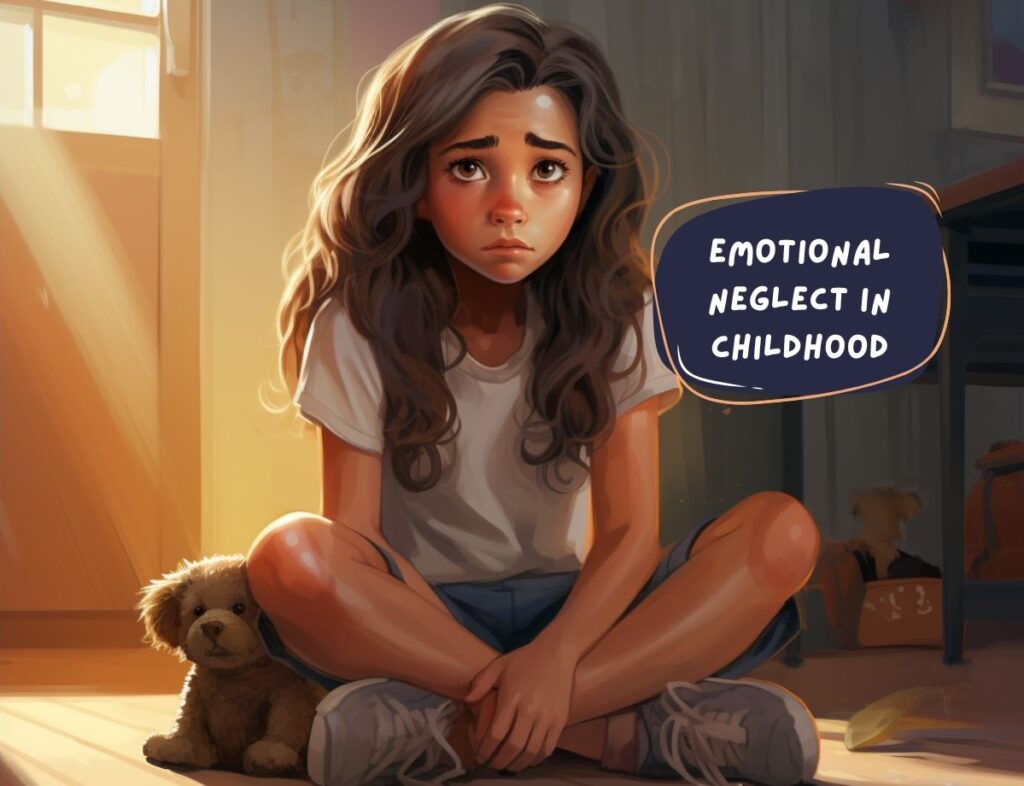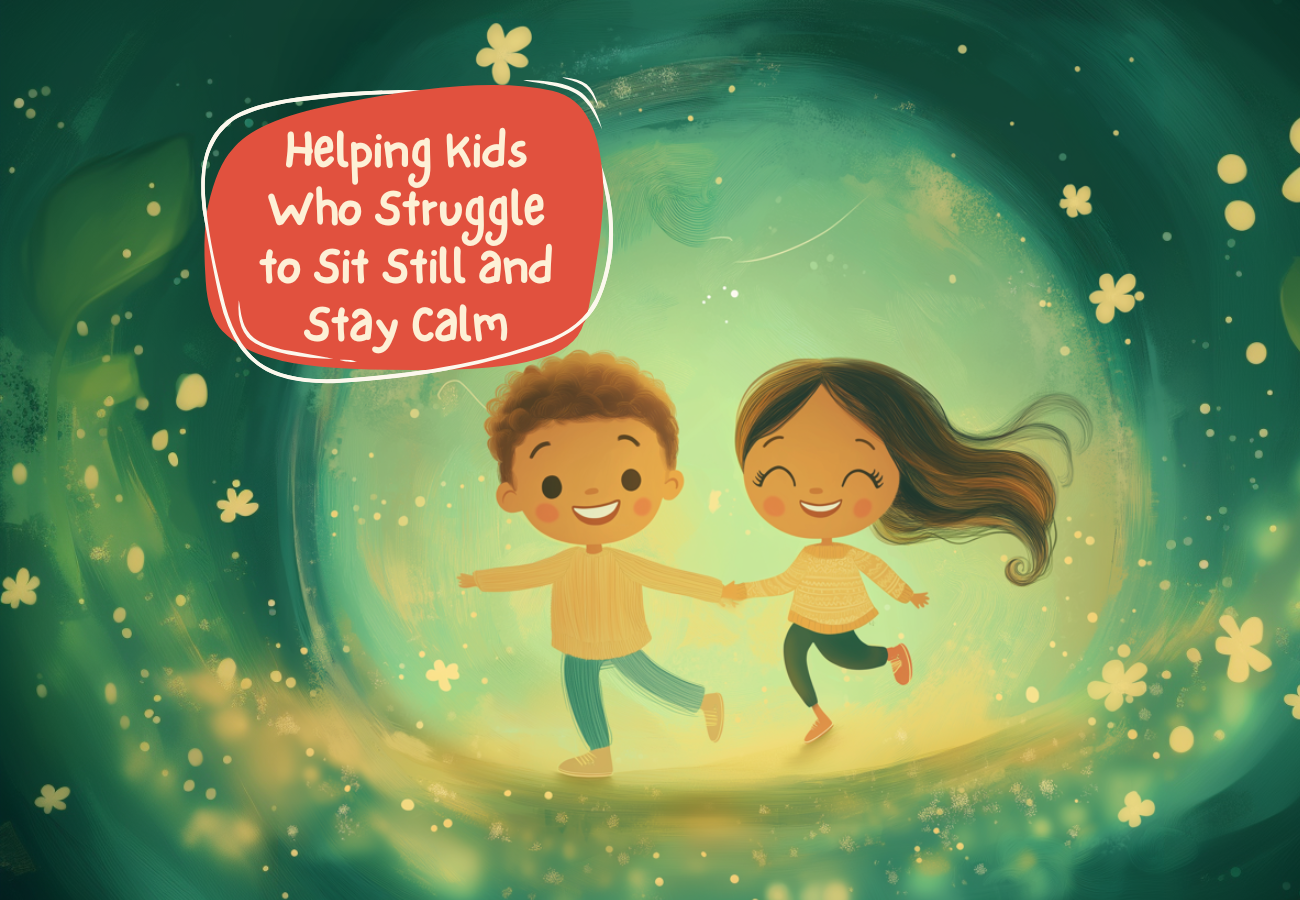Emotional Neglect in Childhood: Symptoms, Effects, and How to Cope

Many kids are subjected to such a psychological issue called childhood emotional neglect. It happens to those children who experience a lack of parental care, especially in terms of the acceptance of their emotional needs. To put it in a nutshell, emotional neglect in childhood occurs as a result of ignoring kids` emotions.
It can lead to serious problems with self-acceptance in the future. That is why it’s vital to reveal the problem as soon as possible and take action to overcome its possible consequences.
Understanding Childhood Emotional Neglect
Childhood emotional neglect is a parental ignorance of kids` emotional needs which leads to serious psychological matters. It can develop in children in both ways. First, parents depress kids’ feelings on purpose because of many factors such as low emotional intelligence, their own experience of maltreatment in childhood, religious views, etc. Second, they don’t notice that they oppress kids` feelings simply because they don`t understand how fragile kids` emotional system is. The symptoms of childhood neglect appear to become more and more widespread among kids.
15 Signs of Childhood Emotional Neglect
Emotions play a vital role in the children’s mental development. It defines their mental state which, in turn, affects the way kids adopt the rules of life, develop self-perception, and, thus, their ability to live in society. There is lots of exciting stuff for boys and girls to boost their emotional health. Take, for example, coloring and activity books about emotions with funny tasks and activities. But parents should also pay attention to their kids’ mental health to control whether there is a lack of self-confidence and self-love.
What Are the Signs of Emotional Neglect in a Child?
Here’s the list of 15 most common signs
1. Constant need for validation – your kid cannot help but want to be noticed and praised.
2. Difficulty expressing emotions – constant temper tantrums are a sign that your kid has a lot of emotions to express.
3. Low self-esteem – self-criticism, hesitation, and dependence on other peers’ opinions.
4. Fear of emotional intimacy – your little one doesn’t trust you or hide the true feelings from you.
5. Difficulty setting boundaries. Emotional neglect in childhood often results in disobedience. Now that kids need to refill their lack of attention they will attract it by all means, one of which is to go beyond the boundaries. To deal with it, you have to be extremely patient. Some advice can come in handy as well.
6. Self-sufficiency to an extreme – some kids tend to resent their absent parents and try to overcome it by building the neurotic behavior, that is building excessive self-sufficiency.
7. Guilt and shame – among symptoms of childhood neglect this one is one of the most unpleasant. Living with constant feelings of guilt and shame isn’t about a happy life.
8. Perfectionism. To be the best in everything! And that’s not about a normal desire to succeed in something. It’s about the continuous struggle to do the impossible.
9. A sense of emptiness – if you have no one to share your feelings with, you`re a lonely person and emptiness is your everyday frame of mind.
10. Lack of empathy for self – if nobody cares about the child, he will have no empathy for himself as well.
11. Avoidance of conflict. Childhood emotional neglect provokes low self-esteem. So such a person can be afraid of conflicts where they are sure to fail.
12. Trust issues – kids don`t tell all the truth to their parents, avoid some topics and never ask for advice.
13. A tendency to self-soothe. Emotions always have to be expressed. If there is no one to share them with, kids begin to calm themselves down by constantly moving backward and forward while sitting or sucking their thumbs. biting nails, etc.
14. Feeling detached from one’s emotions – children become reserved and non sensitive to any kind of emotions.
15. Chronic self-criticism. The most common phrases for kids who suffer from self-criticism are “I can’t do this”, “ I’m a loser”, etc. That’s not strange because the lack of love makes them think they are not good enough to be loved.
If your kid has at least several of these 15 signs of childhood emotional neglect, it’s time to be into his life.
Symptoms of Childhood Neglect
Kids express the symptoms of childhood neglect in 3 ways, that are depressive, behavioral, and cognitive symptoms.
Emotional symptoms
These kinds of symptoms are the most noticeable. We can highlight the most well-seen ones.
- Depressive symptoms. Kids are in a bad mood all the time. They don’t smile and are always gloomy.
- Anxiety and panic attacks. Kids may sweat a lot, and experience sudden increases in heart rate, and goosebumps for no reason. Besides, they are anxious all the time.
- Emotional dysregulation. Temper tantrums in the morning and a good frame of mind in the evening. That is familiar to many parents of kids with symptoms of childhood neglect.
Behavioral symptoms
- Social withdrawal – no friends, no desire to have ones.
- Self-destructive behavior – kids may bite themselves, bang their heads against the wall, or cause any other harm to themselves.
- Substance abuse. Smoking, drinking alcohol, and even drug abuse can await those children who haven’t got enough parental care and love.
Cognitive symptoms
- Poor self-esteem. Kids don’t believe in themselves. It`s a common problem among children. Give your kid a chance to acknowledge the problem and get rid of it with some special books.
- Negative self-talk. Children tend to criticize themselves. If so, it’s one of the signs of negative self-talk. It can also be the result of emotional neglect.
- Cognitive distortions. This category includes mental disorders of any type that can ruin your little one’s life or make it at least less pleasant. If you notice any sight of strange behavior in your kid, contact the therapist as soon as possible.
Signs of Emotional Neglect in a Child
Recognizing Emotional Neglect in Children
Lack of Emotional Responsiveness
If you hug your kid and they want to avoid it, and it happens all the time it may be a sign of emotional responsiveness. Also, this umbrella term includes all possible cases when your little one expresses less emotions than usual or less than expected.
Self-Soothing Behaviors
Kids with childhood emotional neglect undergo stress every day. They feel uptight and need to relieve these sensations. Consequently, they build self-soothing patterns of behavior that not only look a bit strange but are also useless, giving only a short-term result.
Difficulty Forming Attachments
Since kids are reserved, they have trouble bonding with people and don’t want to develop socially.
Red Flags in a Child’s Behavior
As long as you notice any of the signs described below, pay attention to your little one’s mental health. They may need your help.
- Frequent temper tantrums – emotions need to be expressed and a temper tantrum is a nice opportunity to do it.
- Regression in development – mental and physical work as the same team. Thus, if there are some problems with psychological conditions, the regression in development is an obvious consequence of it.
- Excessive independence. This sign is closely related to low self-esteem. Since a kid feels low, he`ll try to overcome it by any means affordable and acts of independence are the most common way to do it.
The Impact of Childhood Emotional Neglect
Emotional neglect in childhood impacts the whole life and affects personality building.
- Emotional consequences – kids become aggressive, and their mood is constantly changing. They cannot take control of their own emotions and put their foot down when needed.
- Social Consequences – kids experience difficulties defending their own interests.
- Psychological consequences – meltdowns, depression, panic attacks, fears and phobias.
- Relationship consequences – no lasting friendship, no trust or confidence in terms of being accepted and not rejected by other people.
Coping with Childhood Emotional Neglect
Parents have to work on strengthening and building a strong sense of self-worth in their kids. You can overcome symptoms of childhood neglect by following these advice.
Work on Self-Awareness and Validation
This task aims to teach kids how to identify their state and then accept it. First, you have to show them how to analyze their feelings. Kids should understand what they need.
Seeking professional help
The next step consists of two stages.
- Look through the internet for some solutions to this problem: conversation with kids, therapy options and their pros and cons, aims, etc.
- Find a therapist your kid and you will trust.
Building Emotional intelligence
You have to learn emotions. Help kids not to be afraid to express thoughts, and share some moments with others. Also, talk about emotions and come up with a strategy for coping with them.
Establishing Boundaries and Self-Care
Emotional neglect in childhood causes some mental disorders which can influence our physical state. You need to teach kids how to take care of themselves and avoid triggers that result in something bad for them. First, set healthy boundaries between “I want” and “It wouldn’t be bad for me”. Also, make sure kids perceive self care as the top habit in their lives.
Building Supportive Relationships
The core problem of childhood emotional neglect is the lack of parental attention. You need to bond with them. The aim is to make your little one trust you. Even giving a star on your kid’s star chart would be a small sign of support.
Healing and Self-Compassion
We talk a lot about love but to respect yourself is no less important. Say to your kids that it’s OK to take care of themselves as well as accept mistakes. Kids should know that self-compassion is a natural thing and there is nothing wrong with it.
Conclusion
Signs of emotional neglect in a child can be different, less or more expressed, etc. Yet, you should be very attentive not to miss the first signs of it. If so, you have to prevent your little one from future undesired problems with self-acceptance, self-care, and a lot of other similar stuff. Your kid`s well-being is your responsibility. Be a present parent!
More articles

Helping Kids Who Struggle to Sit Still and Stay Calm
Some children move through the world with nonstop energy that rarely seems to slow down. They bounce, fidget, tap their feet, or speak out when quiet is expected. These behaviors can feel overwhelming for parents, teachers, and caregivers trying to create calm. Is the child being defiant or simply overstimulated? Are they anxious, under-challenged, or […]

Teaching Kids to Celebrate Differences Through Books
Why Books Matter in Teaching Kids About Differences Teaching kids to celebrate differences through books is one of the most effective and natural ways to build a more inclusive future. Stories have long served as windows into other lives, cultures, and perspectives. When children read books that highlight diversity, inclusion, and empathy, they begin to […]

How Technology Can Empower Your Kids to Learn, Grow, and Thrive
Technology often gets a bad rap when it comes to its effects on children, including issues related to screen time, cyberbullying, and online distractions. While these concerns are valid, these misconceptions should not overshadow its incredible potential to enhance education, creativity and well-being for your child when used responsibly and mindfully. When used appropriately, technology […]



